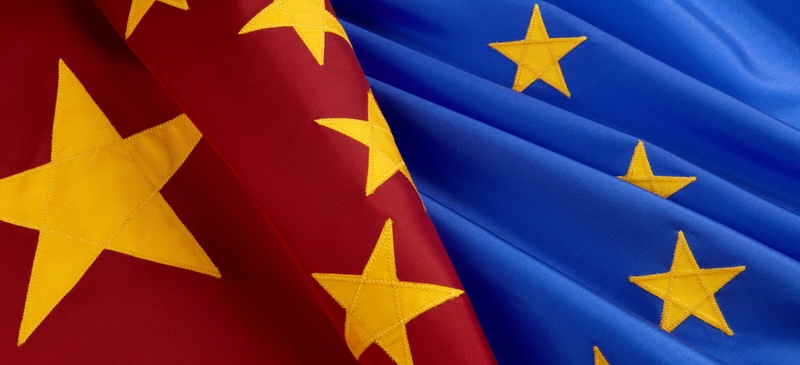
Europe must build a strategic alliance with China
The shift of power from west to east, as the US-dominated international order becomes multipolar, is evident. But the nature of the emerging system is far from clear. Will it be competitive, based on the assertion of national power, or co-operative, framed by international rules?
Robert Kagan, in his new book The End of Dreams and the Return of History , foresees the former. He expects the political values of the various powers to determine their alliances. Thus Russia and China could form an axis of autocracies, united by their dislike of political liberalism. They would face an axis of democracies, consisting of the US, Europe, Japan and perhaps India.
Many Europeans recoil from that kind of balance-of-power politics. They believe that the big challenges - climate change, energy security, migration and terrorism - require co-operation among all the leading powers, rather than just the democratic ones, and strong multilateral institutions.
Of the big powers, only the European Union can be relied on to champion multi-lateralism. The concept is built into its DNA, since the union itself is a multilateral construction. China, India, Russia and the US are capable of acting uni-laterally, bilaterally or multi-laterally, depending on their perception of which tool best promotes their -interests.
The prospect of a multilateral order looks quite good. As the US becomes relatively weaker, and more concerned about the behaviour of other powers, it is more likely to favour strong institutions to constrain them. Many Europeans and Americans, driven by econ-omic selfinterest, will prefer to engage rather than confront Russia and China. And a close alliance between those two countries is unlikely: their political elites mistrust each other, and Moscow knows that in any partnership with Beijing, China's economic strength will make it the dominant partner. China's leaders care more about what Washington thinks than Moscow. Indeed, the most important geostrategic relationship of the 21st century is likely to be that of China and the US, because of their mutual economic dependence and potential strategic rivalry.
But the China-EU relationship will also help to shape the international system. The EU is China's biggest trading partner and their two-way trade topped €300bn ($470bn, £240bn) last year. The Europeans complain that Beijing does not play fair, failing to enforce intellectual property, undervaluing its currency and restricting foreign investment. The EU is threatening China with trade weapons that, if applied, would sour the relationship. Meanwhile the EU is bumping up against China all over the world, when dealing with issues such as Darfur, Burma, the Iranian nuclear programme or curbing carbon emissions. These kinds of problem cannot be solved without Chinese help.
Within the Chinese government, there is a vigorous debate between liberal internationalists, who are sympathetic to multilateralism, and assertive nationalists, who are not. The latter remain influential. Hence China's support for the principle of non-interference and for regimes shunned by the west, such as Burma, Iran, Sudan, Venezuela, Uzbekistan and Zimbabwe. In return China has won contracts to exploit oil and mineral resources in these countries. Hence China's defence budget, which has grown much faster than its economy, worrying neighbours such as Taiwan, Japan and India.
Yet the long-term trend of China's foreign policy seems to be for it to become, as Robert Zoellick, the World Bank president, has urged, a "responsible global stakeholder". China joined the World Trade Organisation in 2002. It has led the international diplomacy to persuade North Korea to abandon its atomic weapons programme, and voted (albeit reluctantly) for three rounds of United Nations sanctions against Iran.
As consistent proponents of multilateralism, Europeans are best placed to make the case to China for working through international institutions. The EU and China should build a strategic partnership, focused on issues that cause tensions but which, if tackled in a serious dialogue, could strengthen global governance. The priorities should be climate change, nuclear nonproliferation, Africa and maintaining an open global trading system. If Europe can use such a partnership to draw China towards multilateralism, the whole international system will tilt away from balance-of-power politics.
